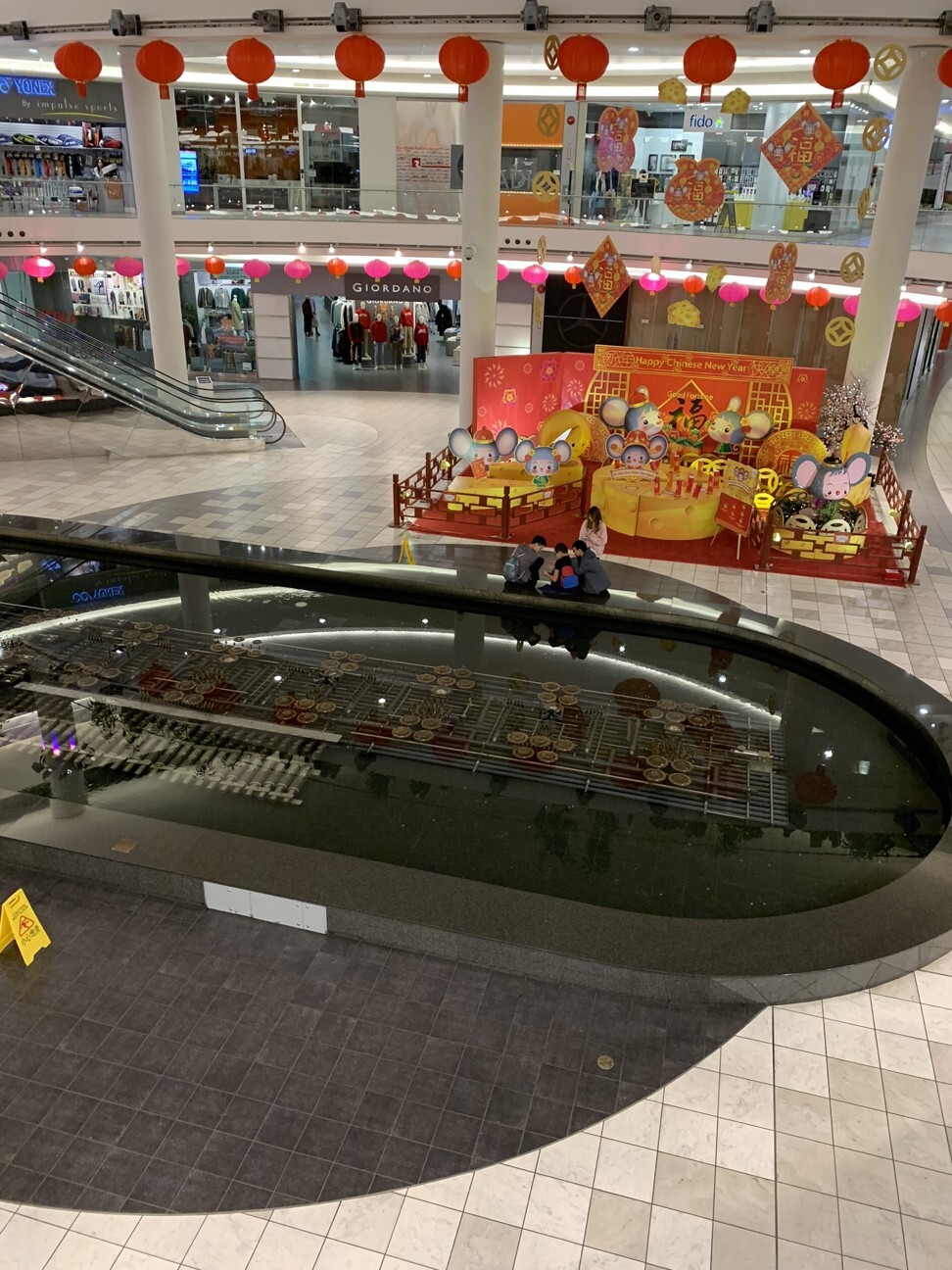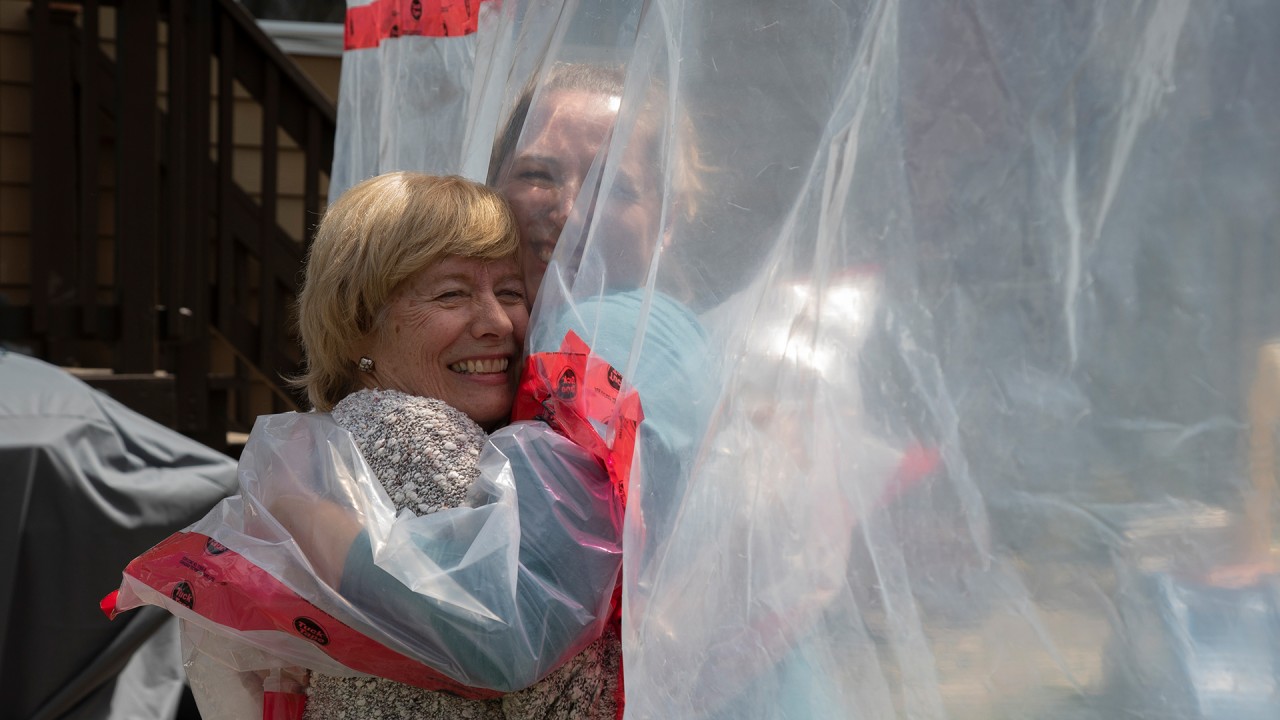
The pandemic paradox of Vancouver’s Chinese economy: customers are fans of reopening, and social distancing too
- A survey shows East Asian people in BC are substantially more enthusiastic than European residents about reopening businesses
- But East Asians have also been stronger adherents to Covid-19 distancing measures, presenting challenges for business owners
Like other restaurants around metro Vancouver – around the world, really – Tom Mah’s Continental Seafood in Richmond has been hurting.
All restaurants in British Columbia were ordered closed to dine-in customers on March 20 as an anti-pandemic measure.
That ban was lifted on Tuesday, as the province began what it called “phase two” of its economic reopening, with pubs, cafes and various retailers also welcoming customers if they could meet social-distancing requirements.
But because Continental Seafood relies mostly on an ethnic Chinese clientele, it has been feeling the impact of Covid-19 a lot longer than two months.
“Our restaurant, our main revenue is from banquets,” said Mah, Continental Seafood’s president. “Starting in early January, through Chinese new year [on January 25], we lost all this business because of cancellations of celebrations.”

As Wuhan grappled with the mysterious disease outbreak 9,000km (5,592 miles) away, mainland Chinese visitors to Richmond – the most ethnically Chinese city in the world outside Asia – cancelled parties at Mah’s restaurant.
Local customers soon followed suit, he said, even though it would not be until January 28 that BC recorded its first case of Covid-19. It would be March 5 before the first known case of community transmission in BC was detected.
“Chinese restaurants were hit bad in that period of time … even in January, our customers were scared to come out,” said Mah. “Organisers [of banquet bookings] didn’t want to take any responsibility, so they cancelled the parties, just in case.”
Owners of Chinese-reliant businesses like Mah are faced with a Covid-19 paradox.
Chinese restaurants were hit bad in that period of time … even in January, our customers were scared to come out
According to a recent survey, BC’s East Asian population – of which Chinese make up the largest component – is more enthusiastic than the ethnically European population about the province’s economic reopening. Fifty-one per cent of East Asians strongly approve of the business resumption, compared with 35 per cent of European-origin BC people.
But at the same time, East Asians have been stronger adherents to social distancing measures, Research Co found in a poll of 800 people conducted from May 8-11.
East Asians were more likely to have switched to working from home (51 per cent to 32 per cent), to be at home caring for children (40 per cent to 28 per cent) and to have been unable to visit relatives (55 per cent to 48 per cent) during the pandemic.

Mah’s experience may reflect that paradox. He said regular customers had been excited about the reopening, asking him when Continental would bring back ballroom dancing – a popular feature of the restaurant that still remains off the agenda.
But the restaurant, which usually seats 420 people, only had about 35 diners on Tuesday evening, the first night of dine-in trade. There had been 133 patrons for lunch.
“Lunchtime, I’m very comfortable. But dinner is not so great. Not many reservations,” said Mah.
Asian Canadian women abused, punched, spat on. Is it racist maskaphobia?
“But we have to wait and see for the weekend. We’ll find out on Saturday if people are still wanting to go out for dinner.”
To meet new workplace safety requirements, Mah has reduced seating from 420 to 120, with tables spaced two metres apart.
But Mah has gone beyond the official rules, in an effort to allay diners’ fears. Plexiglas barriers separate customers from the cashier, all staff wear masks and gloves, every diner has their temperature scanned, and 11 air-purification devices have been installed.

02:13
Canadian invents ‘hug glove’ to embrace loved ones amid Covid-19 pandemic
Mah said turnover had fallen by 80 per cent while Continental was restricted to takeaway customers.
Other Chinese-reliant businesses in metro Vancouver have also been suffering since late January.
When members of the region’s Chinese communities began staying away from restaurants and crowded areas then, the phenomenon was regarded as a curiosity, or something to be deterred.
Covid-19 rate in Canada’s most Chinese city isn’t what racists might expect
Federal health minister Patty Hajdu, provincial counterpart Adrian Dix and Vancouver mayor Kennedy Stewart met business owners and blamed coronavirus “misinformation” for the empty stores and restaurants, as they tried to persuade customers to return. But the mid-February campaign was short-lived, and within a month government messaging had switched to encourage social distancing.
The Aberdeen Centre mall in Richmond was hit by the phenomenon. The mall’s 800-seat food court is usually packed, but by early February it was filled instead with empty tables, long before the official March 20 closure.
Tiffany Ho, senior vice-president at Aberdeen’s parent company the Fairchild Group, said the food court would remain closed until next week while management established hygiene protocols that would include removing large tables, sanitisation after every group and one-way movement through the court.

02:48
Coronavirus: Asian actors hit back at anti-asian racism
“They [customers] appreciate that we will do all the precautions before we reopen,” said Ho.
Eight of the food court’s 20 or so tenants remained open for takeaway business, she said.
While Covid-19 presented challenges, the centre has recently received inquiries from new businesses seeking space in the food court, Ho said.
Looking ahead, Mah said the Chinese restaurant industry faced particular challenges. Gatherings involving more than 50 people remain banned under BC’s pandemic rules.
As a result, wedding parties – a mainstay of the Chinese banquet trade – have been cancelled at Continental Seafood through September, Mah said.
But in addition to rules being relaxed, customers also needed to feel comfortable again.
“We need to have a safety atmosphere for customers and staff,” he said.

